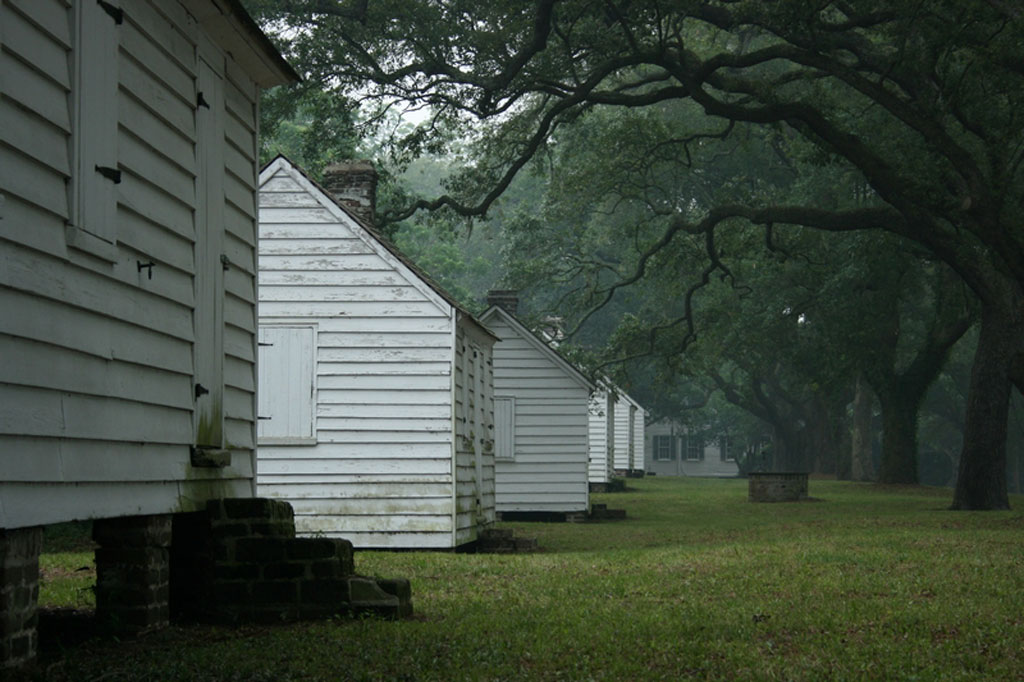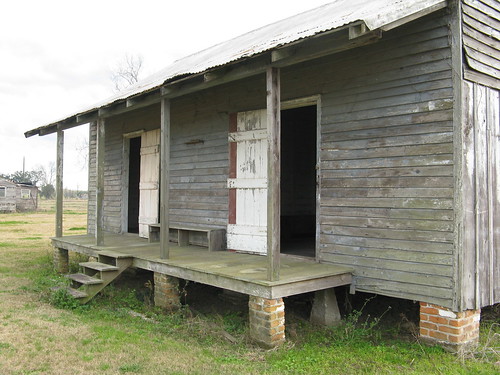
From the Pittsburgh Post-Gazette, "Slavery is key part of riveting U.S. history," by Tony Norman, on 1 January 2013 -- If American history were taught right, with the foibles and failures of its great men and women disclosed upfront instead of hidden behind the fine print of hagiography, there's no way it wouldn't be every citizen's favorite subject.
But the sad fact is that it is rare, even in schools that aren't failing, to find teachers who are encouraged to teach American history with the interdisciplinary integrity it deserves. How is it possible to do credit to our nation's convoluted history by teaching it in hermetically sealed units, as if it were a disciplined march from the Mayflower to the smoldering ruins of 9/11?

American history taught right would leave us weak-kneed from exposure to the audacity of the American experiment, its inherent contradictions, its triumphs and its failures. American history is a many-tentacled, undisciplined and gloriously rambunctious mess, with a large and diverse cast of scoundrels, patriots, fanatics, flawed heroes and sanctimonious villains.
There are times when those whose names recur the most in our history books move back and forth between otherwise distinct moral categories like hero and villain with the felicity of ghosts.
The Post-Gazette this week published a two-part series on the 150th anniversary of President Lincoln's issuance of the Emancipation Proclamation, a document that freed the slaves in the territories not controlled by the Union.

On Monday, Executive Editor David Shribman vividly described Lincoln's agony as he sought to do the right thing more than a century after the Founding Fathers kicked that can down the road. It would be up to Lincoln to settle -- through a bloody civil war -- whether remaining a slave republic was compatible with our nation's highest ideals.
What comes across most in the description of Lincoln's mindset on that fateful New Year's Eve in 1862 was that issuing the proclamation that freed the slaves was not a foregone conclusion. His abolitionist allies had no idea whether he would actually do it, though they hoped for the best.

Meanwhile, the president we now call the Great Emancipator struggled with what it meant to take a step -- freeing the slaves -- that the Founding Fathers debated and ultimately rejected as impractical and too provocative. Lincoln decided it was in the interest of the nation to forge a new path, even if it would scandalize the Constitutional "originalists" of his day.
We're fortunate that Lincoln did not see the reluctance of the nation's founders as somehow sacrosanct when it came to slavery. As an attentive student of American history, Lincoln understood that our past would always be in dynamic tension with our present and our future. It was his duty -- and ours -- to interrogate American history and to reject the flawed logic and mixed motives while striving for a more just and equitable future.

Given the constantly evolving stakes of our history, why do most students hate history even more than math? There's not a boring or inconsequential moment in the politics of Lincoln's brave act. Teaching it chronologically without bringing in every academic discipline including literature, economics and slave narratives is criminal, though. It is impossible for a kid with a brain not to be riveted by any dramatic moment in American history if it is taught correctly.
Earlier this year, historian Henry Wiencek followed up "An Imperfect God," his indispensable exploration of George Washington's tragic accommodation with slavery, with "Master of the Mountain: Thomas Jefferson and His Slaves."

Reading Mr. Wiencek's well-written and thoroughly sourced books, we learn that the two most admired architects of American liberty violated their own principles rather than suffer the financial loss that moral consistency would have cost them by freeing their slaves.
For those who know what a burning prairie fire American history tends to be, there's nothing particularly new in Mr. Wiencek's latest book, but not a lot of Americans are aware of it. What the eminent historian does for the average reader is put both the glory and the tragedy of Jefferson the slave owner into as unsentimental a context as possible. Jefferson is not allowed to sit on a pedestal. Because he's a human being, we don't have an incentive to yawn.

We've always suspected that the Founding Fathers acted with mixed motives when it came to slavery. After all, they were flawed people with often irreconcilable passions and contradictory impulses, just like us. Some of them were determined to make as much money as possible at the expense of the bodies and souls of others.
Let's keep the dynamic nature of American history in mind as we once again debate the wisdom and intent of the Second Amendment. The U.S. Constitution isn't static. American history isn't even past.
(source: Pittsburgh Post-Gazette)

Great info. Lucky me I found your site by accident (stumbleupon).
ReplyDeleteI have saved as a favorite for later!
Feel free to surf my blog :: make some extra money
Hey, interesting article as usual. But, you might want to edit the title.
ReplyDeleteNBP
Hey, you're right, the title is way sucky...perhaps we'll just stick with the Pittsburgh Post-Gazette's title. Aren't the photographs of the slave cabins hauntingly beautiful. Thanks for your feedback.
Delete--Ron Edwards, US Slave Blog
Ron....American history is like music, or any other subject. Some have the interest or aptitude, some don't.
ReplyDeleteHey Ripama,
DeleteMerry Christmas and Happy New Year! Where have you been, dude? Thanks for visiting and commenting. I hope this year is a good one for you.
--Ron Edwards, US Slave Blog
Thank. same to you. I belong to a Facebook Group named DNA Tested African Descendants, and I pasted your website in their forum.
DeleteThe conversations focus on Genetic Genealogy, Africa and related issues. Slavery and genealogy are inseparable for most of us, so maybe some in the group mayfind something to help them on this site.
Thank. same to you. I belong to a Facebook Group named DNA Tested African Descendants, and I pasted your website in their forum.
DeleteThe conversations focus on Genetic Genealogy, Africa and related issues. Slavery and genealogy are inseparable for most of us, so maybe some in the group mayfind something to help them on this site.
Thanks for the reference. I don't dabble much in genetics, after that whole eugenics thing at the turn of the Century, WWI and WWII.
DeleteYou're the reason why this site exists. We have had over 1.2 million pageviews and 120 followers. This site needs some serious reorganization, to help readers find sources more easily. I've been debating the categories and structure. Would it be easier to gather information by region, state, country, colonizer, commodity, timeline, slave ports, slave markets, wars, religion, European power? I don't have an answer yet, but it's something that I'm working on.
It seems like the most popular posts involve slave tortures, musical influences; cotton slavery is more popular than sugar, tobacco, rice or mining slavery. My readers tend to frequent the odd, bizarre, graphic stories that are just a bit off the beaten path.
I have a penchant for the the unvarnished history and many of the posts are quirky twists that I have discovered in my research. And much like my readers, I enjoy the slightly unusual slave stories.
I get very little traffic on the Civil War, Lincoln, Emancipation, Fredrick Douglass, Harriet Tubman, Wilberforce, or abolitionist. This site seems to attract people who prefer the strange stories, Medieval punishments, human zoos, slavery's aftermath, music and musical instruments, popular culture, negrophobic propaganda and unexpected connected historical dots. Let the truth be told, so do I.
If you haven't noticed, I really, really like art and artists -- It doesn't matter if it's a photograph, painting, sculpture, architecture, ceramics, food, music, poetry, dance. And I prefer long meaty lectures rater than facile sound bites.
Please give me some constructive criticism. I'm going to revamp this site and I'd appreciate some feedback as to what you like, love, hate or despise. Thanks!
--Ron Edwards, US Slave Blog
I've been exploring for a little bit for any high-quality articles or blog posts on this sort of area . Exploring in Yahoo I at last stumbled upon this site. Reading this info So i am satisfied to convey that I have a very excellent uncanny feeling I found out exactly what I needed. I most indubitably will make certain to do not overlook this site and give it a look regularly.
ReplyDeleteHave a look at my page - usa online casinos
Actually genetics tends to discredit eugenics.
ReplyDeleteI've been so occupied in genealogy, I can only visit on ocassion. Coincidently, the first time I ever heard about Contraband Camps was shortly before you posted a story about them.
I take a different tack from your readers. I prefer to dignify and humanize our slave ancestors rather than view them as objects of inhumane treatment. That means the full story must be told. We've argued about this in the past. Since I've been involved in genealogy, I've learned that the slave issue is way more complex and involved than I thought.
Your photos are great, and your commentary is full of relevant content.
One site I like a lot is http://dirtyoldboston.com it let's its photos do the talking for the most part. You seem to have a sizeable library of photos that can speak for themselves with a little context added.
yeezy
ReplyDeletekyrie 5 shoes
ralph lauren uk
jordan retro
nike epic react
balenciaga shoes
nike air force 1
yeezy boost 700
michael kors outlet online
off white
newssee page Sourceview it now Check This OutBonuses
ReplyDeletelook at here now you can try these out you could try here more info here the original source this post
ReplyDelete